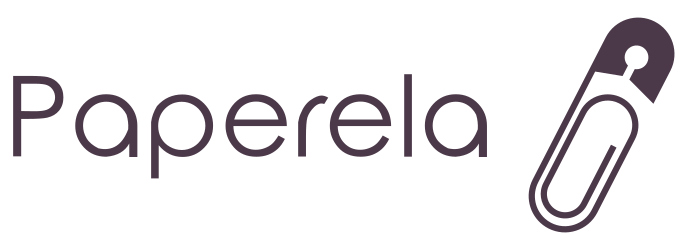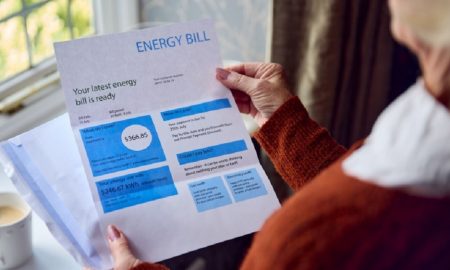
How Undocumented Immigrants Can Secure a Home Loan in the U.S.

Challenges of Securing a Home Loan Without Documentation
Undocumented immigrants often face several barriers when applying for a home loan. These include:
1. Lack of a Social Security Number
Many traditional lenders require a Social Security number (SSN) as part of the mortgage application process. Without it, undocumented immigrants have limited access to conventional loan programs.
2. Limited Credit History

Freepik | wayhomestudio | Immigrants often face mortgage difficulties due to limited US credit, not necessarily poor finances.
Lenders heavily rely on credit scores to assess an applicant’s financial reliability. For many immigrants, a limited or non-existent U.S. credit history can make it challenging to qualify for traditional mortgages. However, limited credit history doesn’t necessarily reflect poor financial habits. As one real estate expert put it, “Many immigrants show exceptional diligence in paying their rent, utility bills, and other expenses on time.”
3. Employment Verification Issues
Proving consistent and verifiable income is another hurdle. Many undocumented individuals work in informal or cash-based jobs, which complicates the process of providing the proof of income that lenders require. In some cases, this might lead to higher down payment demands from lenders to offset perceived risks.
Home Loan Options for Undocumented Immigrants
While conventional loans may not always be an option, there are alternative pathways for securing a home loan:
1. ITIN Loans
ITIN loans are designed specifically for individuals who do not have an SSN but have an Individual Taxpayer Identification Number (ITIN). These loans allow undocumented immigrants to apply for a mortgage and require proof of their ITIN, along with other standard documents like income verification.
ITIN loans are often provided by specialized lenders, and while they may have higher interest rates or require larger down payments, they remain a lifeline for many aspiring homeowners. “Having an ITIN significantly opens up opportunities for undocumented immigrants to pursue their dream of owning a home,” shared a seasoned real estate agent.
2. Private Loans
Private loans, often sourced from friends or family, are another option. Unlike traditional lenders, private agreements are more flexible and negotiable, which can result in better interest rates or loan terms. However, it’s crucial to formalize these arrangements with legal documentation, such as a promissory note, to protect both parties involved.
Tips to Simplify the Path to Homeownership

Freepik | Drazen Zigic | Co-signers with good credit can increase your chances of loan approval.
Apart from exploring alternative financing options, undocumented immigrants can take additional steps to improve their chances of success:
1. Build a Credit History
Establishing good credit can greatly improve loan eligibility. Opening a secured credit card or becoming an authorized user on someone else’s credit card can help build credit. With consistent payments, a credit score can begin to take shape within six months.
2. Save for a Larger Down Payment
Lenders offering ITIN loans often require down payments ranging from 15% to 25%. Saving aggressively for this can demonstrate financial commitment and reduce the perceived risk for lenders.
3. Consider Adding a Co-Signer
Having a co-signer, particularly one with strong credit and verifiable income, can increase your chances of loan approval. This person agrees to share the responsibility of the loan, providing added assurance to the lender.
4. Explore Financial Education Resources
Community organizations and nonprofit groups often offer financial literacy programs tailored to immigrants. These programs can help individuals understand loan requirements, improve budgeting skills, and navigate the home-buying process.
Moving Forward Toward Homeownership
The journey to homeownership for undocumented immigrants may be fraught with challenges, but it’s far from impossible. With the right resources, determination, and strategies like ITIN loans or private lending, achieving this goal is within reach.
By taking proactive steps to build credit, save diligently, and explore alternative financing options, immigrants can secure a home loan and turn their dream of owning a home into a reality.
More in Legal Advice
-
`
How Can You Leverage Higher Income Limits for Capital Gains Tax Benefits?
As tax laws evolve, understanding how to leverage higher income limits for the 0% capital gains bracket becomes essential for savvy...
November 7, 2024 -
`
Investor David Einhorn Thinks Peloton Can Be Worth Five Times More IF It Cuts Costs
David Einhorn, founder and president of Greenlight Capital, has a bold vision for Peloton. He believes the struggling fitness company could...
November 7, 2024 -
`
How Interactive Matter Maps Improve Legal Research and Planning
Interactive matter maps have transformed legal research and planning by simplifying how law firms manage complex matters. These tools help legal...
November 1, 2024 -
`
The Role of Global Mobility in Business Planning for 2025
In an era where the competition for top talent is fierce, the significance of global mobility in business planning cannot be...
November 1, 2024 -
`
Will AI Legal Advice Empower or Exclude Those in Need of Justice?
The rapid advancement of technology has introduced AI legal advice into the legal profession, creating both excitement and concern. Law firms,...
October 25, 2024 -
`
Trump vs. Harris – Who Does Hollywood Support?
As the race for the White House heats up, celebrity endorsements have become an influential force in shaping public opinion during...
October 22, 2024 -
`
How to Understand Your Energy Bill and Prevent Common Billing Errors
Understanding your energy bill is essential for managing household expenses and catching potential errors. Your energy bill offers a breakdown of...
October 18, 2024 -
`
Is Shawn Mendes’ Relationship With Camila Cabello Finally Clarified?
Recently, Shawn Mendes shared insights into his connection with Camila Cabello during an interview with Jay Shetty. Their relationship, which has...
October 15, 2024 -
`
China Stimulus Fuels Market Surge, But Can It Save the Ailing Economy?
The recent China stimulus measures have sparked renewed optimism in the markets, but doubts remain about whether these efforts will be...
October 10, 2024















You must be logged in to post a comment Login